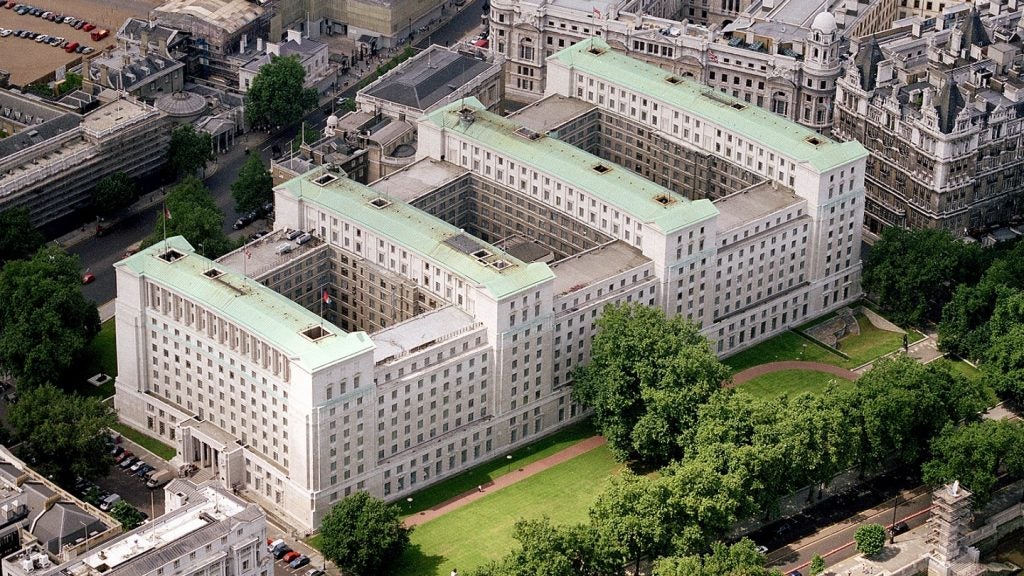
On 25 March 2009, UK Secretary of State for Justice Jack Straw announced a new Bribery Bill, the potential future repercussions of which could be significant for the aerospace and defence industries.
The bill is aimed at helping the UK fight bribery during the current period of financial uncertainty, when businesses are coming under pressure to both cut costs and improve revenue. It is a time when some organisations have avoided reviewing their risk profile and are therefore becoming increasingly exposed to corruption and bribery.
This is not just a UK issue. The topic has been high on the international agenda since the G20 meeting in London in March. The World Bank estimates more than £1,000bn is paid annually in bribes worldwide, distorting free and fair competition in the market and adding 10% to the cost of business. The situation is bleaker in developing countries where bribery and corruption is estimated to add 25% to procurement costs, equivalent to an additional 20% tax on foreign investment.
In the UK, clarification of the bribery laws follows a damning report from the Organisation for Economic Cooperation and Development (OECD) on Britain’s anti-corruption protocols last year – the impact of which is still being felt by UK exporters. The Bribery Bill contains 39 recommendations and looks likely to repeal the existing century-old UK bribery laws, which contain a combination of common law and statutory offences.
The bill offers a clearer set of statutory offences. It is aimed at simplifying the UK process of bribery prosecution through a combination of extra territorial reach and the introduction of a new offence targeting businesses that fail to prevent bribes paid on their behalf. With Jack Straw personally committed to the bill, companies are already being advised to review their business ethics compliance programme to ensure they have robust risk management processes in place. This includes checking they have appropriate insurance cover and have reviewed the liability clauses in the employment contracts of both directors and employees.
See Also:
Such activity has been strongly welcomed by the Defence Manufacturers Association (DMA) and Society of British Aerospace Companies (SBAC), which held a seminar on ethical business practices at this year’s Defence Systems & Equipment International (DSEi) conference in London.
How well do you really know your competitors?
Access the most comprehensive Company Profiles on the market, powered by GlobalData. Save hours of research. Gain competitive edge.

Thank you!
Your download email will arrive shortly
Not ready to buy yet? Download a free sample
We are confident about the unique quality of our Company Profiles. However, we want you to make the most beneficial decision for your business, so we offer a free sample that you can download by submitting the below form
By GlobalDataThe two trade organisations have just released a set of updated guidelines to strengthen common industry standards (CIS).
At the seminar, a range of industry, legal and government representatives shared their views on the potential impact of the UK Bribery Bill.
The government perspective
As part of the UK’s Department for Business, Innovation and Skills (BIS) anti-corruption unit (ACI), Nick van Benschoten has been working very closely with UK trade and investment in raising anti-corruption awareness. He shared his views on the current risks.
“It’s very important that businesses have a good sense of the risks and have good systems in place to deal with them. However, this has to be more than just common industry standards,” he said.
“Recent surveys on corporate practice by accountancy firms such as KPMG and Ernst & Young have found that UK awareness of bribery law, which was previously very high, has collapsed. Some surveys believe as few as 25% of employees – including client officers, ethics officers and even in some cases finance officers – have no idea of the application of UK law towards activities overseas regarding bribery. This causes us some concern.
“I would also like to draw your attention to a particular issue of the Bribery Bill – a new corporate liability offence, which focuses on negligent behaviour to prevent bribery on an organisations behalf. This is not about an organisation at board level knowing or conspiring bribery; it is about an organisation letting bribery happen because they were slack.
“There is an ‘adequate systems’ defence in the proposal, which means a company can prove adequate systems were in place and the incident was a one-off and not a corporate integrity issue. This defence is of great interest as it is intended to sharpen the risks of irresponsible businesses, while giving some sort of incentive or reward for well managed businesses. The Bribery Bill will therefore set the bench mark higher for businesses, as the need to prove that you have a good anti-corruption system in place will be essential.”
The legal perspective
Eoin O’Shea, a partner in legal firm Lawrence & Graham’s corporate crime and regulatory team, claimed the bill would, in general, be good for the defence industry.
“The bill clarifies the law by providing a relatively level assistance process in the international playing field, particularly when it comes to what one can and can not do when dealing with foreign public officials,” he said. “This is an area I believe the industry has been concerned about for a very long time as there are different standards in different countries with different prosecutors, especially in the developing world, which has a very different approach to dealing with corruption.
“It doesn’t, of course, iron out all the wrinkles and nor should we expect it to but it’s a step in the right direction.”
The industry perspective
As director general of the Defence Manufacturers Association, Rees Ward has long been pushing for common industry standards to help fight corruption and bribery.
“This is really important for business. It doesn’t matter if you are the largest corporation or the smallest SME – this is about putting your business and its reputation at risk,” he said.
“Larger organisations in Europe and the US are starting to take bribery very seriously and have the correct procedures, compliance officers and balance already in place, but we cannot become complacent in this area.
“There was a turning point in 2006 when there were a number of allegations against major companies in both Europe and the US. Trade bodies, such as DMA and SBAC, then began to recognise that a serious grip was needed on the situation, otherwise public perception of the industry would become negative.
“The two organisations therefore jointly started holding business ethics forums to address the issue. These, however, were not held just as internal events but we invited members of government and independent experts from outside the industry to contribute too. By doing so we had a broader base that allowed people to lay their problems on the table.
“We as trade bodies are now prepared to have these discussions openly, such as the conference at DSEi, and this has been important for regaining public confidence.”







